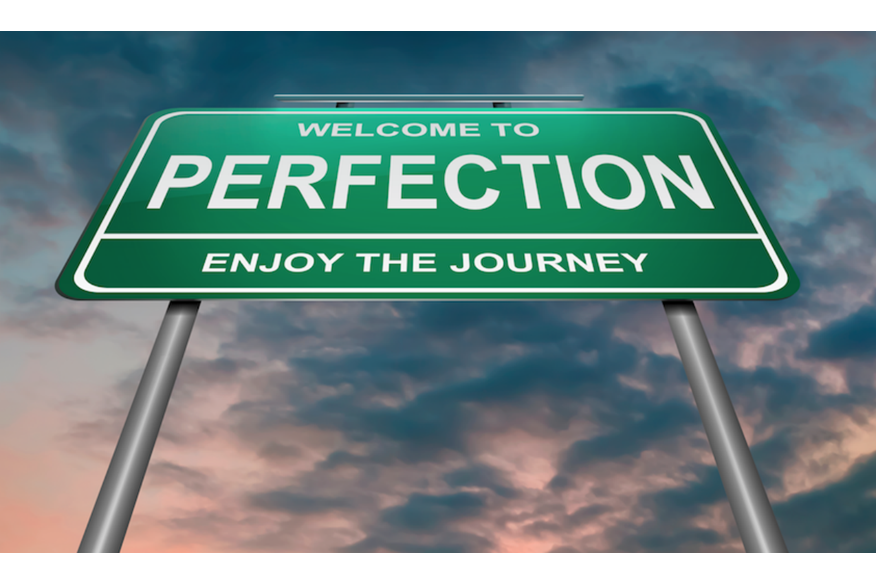Mind Games: Golf isn’t a game of perfect
Published:
Mind games in golf: Learn to harness the positive side of perfectionism and be a perfectionist where you can
Every golfer reading this will have hit a shot that could legitimately be described as perfect. Ok, some of you might have to raid your memory banks more than others… but think back and it will be there, that one moment when you felt the ball push against the sweetspot and looked up to see it soaring straight down the fairway, or at the pin.
While the memory of that shot gives us pleasure, it can also be the cause of pain. The fact the ideal shot is not only real, but also within our grasp, can lead us into some tricky mental areas involving expectation and perfectionism. After all, Golfing perfectionists try to apply absolute rules to a situation that isn’t bound by them.
This is a question that has tortured golfers of all levels since the game began. The great range session that evaporates on the course, the sudden and inexplicable lack of form mid-round, the familiar circus of ‘having it’ then ‘losing it’ while apparently doing nothing di erently… all of these have contributed to a vast amount of disappointment and disillusionment. And all have some level of perfectionism at their root.
In life, there are spheres of activity where perfectionism is unquestionably a good thing. I quite like the idea of an engineer or an accountant being a perfectionist. But these are for the most part contained activities, taking place in controllable environments. They allow perfectionism.
Compare this to golf… perhaps the ultimate game of variables. Each shot takes place in a di erent location, with a different implement. Ground conditions, weather, even your playing partners and your physical condition, all change from one round to the next. The golf course is the very opposite of a controlled environment, and that’s why golf is not a game of perfect.
Golfing perfectionists try to apply absolute rules to a situation that isn’t bound by them. And that engineer, that accountant, are the types of people that are most at risk. After all, why wouldn’t they try to use the mindset that has given them success in their daily lives and careers?
Also at risk are the so-called ‘left-brainers’, people who tend to be more verbal, logical, analytical. This type of person is most likely to follow the linear logic of “I’ve hit this shot before, so I should be able to do it again.” And when golf doesn’t let that transfer over, the game seems so frustrating. So how can you change your attitude to perfectionism in a way that makes you a happier and more effective golfer? Here are two ways that will help you understand it, and apply it in a benefficial way:
1: Harness the positive side of perfectionism
One of the most confusing things about golfing perfectionism is those who seek it most ardently – tour pros – are the best players. This indicates it can be force for good, as well as evil. I think the key to grasping how to harness perfectionism lies in a quote from eight-time LPGA Tour major winner Betsy Rawls. “I have always had a drive that pushed me to try for perfection,” she once said, “and golf is a game in which perfection stays just out of reach.”
Striving for something you know to be unattainable might sound a futile endeavour, yet it is precisely this quality that helps tour pros use perfectionism. They aspire to be perfect, but don’t expect it. Betsy fell in love with the idea of mastering the game you will never master. If you can do the same, you will feel the quest for perfection only as a positive driving force, pushing you to keep improving.
2: Be a perfectionist where you can
You may not be able to be a perfectionist about where your golf ball ends up. But there are more controllable parts of the game where you can demand and expect a perfect performance.
- Pre-round The way you prepare for your round is under your control; once you find out what works for you, you can turn the process into a ritual in which you can be as precise as you please.
- Pre-shot Work out the routine that gives you your best chance of success and work it into a fine art. Annika Sorenstam timed her routine at 24 seconds every time; can you be that consistent?
- Post-shot Your reaction to your shots is one other area that allows control and the chance for perfectionism. Take pride in how well you react to shots, both good and bad; it will help put you in the best possible frame of mind for the next one.

